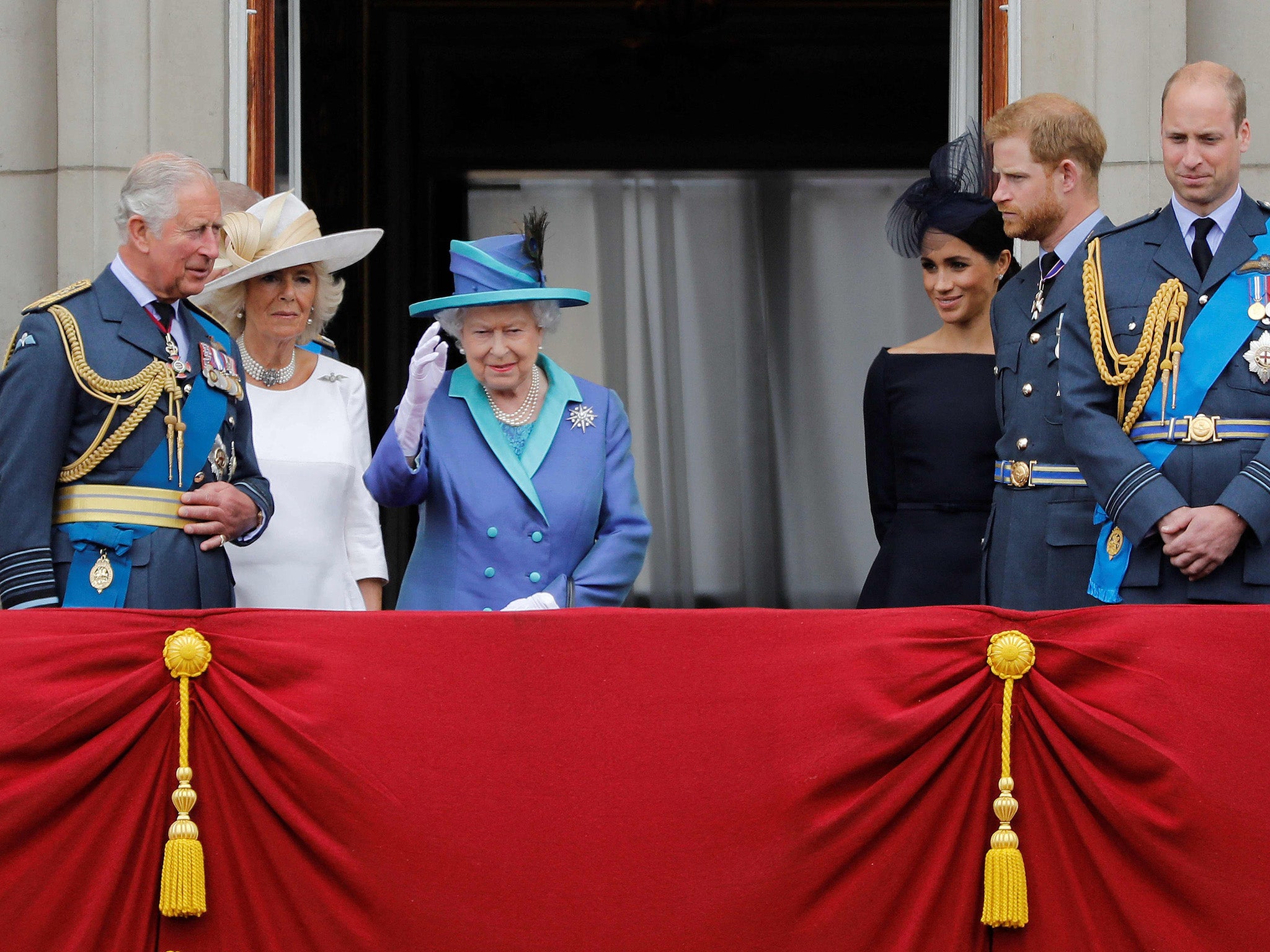What it would take for the UK – or what remains of it – to ditch the monarchy
An overthrow of the royal family in the future should not be excluded, just because it seems inconceivable now, writes Mary Dejevsky


Brexit and the pandemic are already forcing some dramatic reappraisals about a nation – the UK – that was until recently an international byword for stability. From the prospect that the UK could break up, to an overhaul of the NHS and the contemplation of a four (or five) term school year, to a comprehensive review of the UK’s place in the world, this is a time for thinking the unthinkable. And that is no bad thing.
So, let’s throw in another grenade. The Sussexes’ incendiary interview with Oprah Winfrey this week has split UK opinion pretty much down the middle. Recollections, as Buckingham Palace rather delicately put it, may indeed vary; but this split, along broadly generational lines, opens up a much bigger question: could a time come when the UK might ditch the monarchy?
Just to be clear: that moment is not now. We are not seeing a replay of the 1936 abdication crisis. Despite the parallels between Meghan Markle and Wallis Simpson, that situation involved the King; this is the “spare heir” who is only sixth in line to the throne. The future of the monarchy is secure into three generations, regardless of how Harry and Meghan choose to lead their lives.
Nor, for the same reasons, is this a moment that will profoundly rock the palace. The Sussexes’ “opening up to Oprah” is nothing like as damaging as the television interviews given by Charles and Diana at a time when they were king and queen-in-waiting. Nor is it as damaging as the palace’s failure to read the public mood after Diana’s death. There were days then, as the flowers piled up in Kensington Gardens and a mute palace offered not even a flag at half-mast, when the monarchy seemed fragile, to say the least.
That is not so now. The Queen is safely in her castle; she and Prince Philip have been explicitly excepted from the claims of racism, and she has played a stabilising role during the pandemic with her well-timed broadcasts, her morale-boosting knighting of Captain Tom Moore and her words about vaccine responsibility. It may indeed be regrettable that an opportunity has been lost – by whom? – to embrace the Sussexes as agents of modernisation, but the open split has at least brought a certain clarity.
None of this guarantees, however, that the monarchy is 100 per cent secure. The accession of Charles will be a first test. The Queen’s sense of duty and great age have endeared her to her people in a way that will be hard for her son to follow. His concerns for the environment and architectural aesthetics were ahead of his time – and too little appreciated. But he is not a man, or a prince, to whom many naturally warm; and he has waited so long for his crown that his days as king will be numbered.
And will the Cambridges rise to the occasion? Will they be capable of modernising the institution on the model of their Dutch or Scandinavian counterparts? How far will they, or the institution they represent, be accepted by the rising generations of less deferential and more diverse Britons? Will the UK still be a monarchy in 50 years’ time?
It is possible to envisage a scenario in which the royal family and even the monarch simply become still less relevant to daily life than they currently are. This could be reflected in, say, a further diminution of the monarch’s role in political life, including an end to the state opening of Parliament, to the convention that the monarch may “advise” or “warn” the prime minister of the day, and to the monarch’s position as head of the Commonwealth.
This could in turn trigger questions about the civil list: the taxpayers’ money voted by Parliament to support the royal family. And if Parliament refused funds, requiring the royal family to rely only on the income from its estates, then the last ties and obligations between crown and people could in time be cut. This could result either in a monarchy shorn of all meaning but still nominally in place, or a pragmatic acceptance by the monarch and Parliament that the UK should become a presidential republic.
That would be the most benign version. But the idea of overthrowing the monarchy – peaceful or violent – should not be excluded just because it seems inconceivable now. Pandemics, like military defeats, can have the effect of roiling the existing order; not necessarily at once, but in time, especially if people judge that institutions have failed.
With chatter about a “youthquake” in the making, it would be unwise to rule out precipitate, even violent, change, however un-British that might seem to those of us steeped in the seeming permanence of the second Elizabethan age.
And here is a third scenario: would the monarchy be more or less secure, were the UK to break up? As was clear from former Prime Minister David Cameron’s indiscreet relaying of the Queen’s relief at the result of the 2015 Scottish referendum, the collapse of the union would have implications for the monarchy. In a united Ireland, the north would join the republic.
Would an independent Scotland keep the Queen as head of state (on the Canadian or Australian model) – might it choose to become a republic, or might it look for another royal branch with a more specifically Scottish line of descent? And, if England were alone, or with Wales, might it dispense with royalty – or might it, rather, embrace the monarch as an embodiment of old England and become more royalist than before?
With the possible exception of the abdication, there has been no serious threat to the crown since the restoration of Charles II in 1660. With no invasions, occupations (of mainland Britain) or revolutions, England and the UK have lacked the sort of cataclysmic events that have fostered successful revolutions elsewhere. The result, depending on your view, has been centuries of political stability, presided over by an evolving and benign monarchy, or an ossified system headed by a bloated aristocracy that needs to be yanked into modern times, and preferably replaced by a directly elected president on the French or US model.
It has to be said that political systems around the world have moved towards presidential republics, far more often than towards monarchies. Colonial states tended to cast off not just the imperial monarch, but the institution as well, as they gained independence. Spain is one of very few countries to have restored the monarchy - and stuck with it.
The restored Shah of Iran lasted 25 years before he was deposed and replaced with a theocracy. Bulgaria, Romania and even Russia (fleetingly) toyed with restoring a monarchy after the collapse of communism, but went for a presidential system instead. In 2001 efforts were made to restore the ageing King Zahir Shah in Afghanistan – as a way of ending the civil war – but it did not happen, and the king died in exile in 2007.
While history seems to point in one way, however, it could also be argued that the UK inhabits the one part of the world – northwestern Europe – where monarchies still thrive.
In this respect, the house of Windsor could yet buck the trend and retain its throne. Whether it would succeed, however, without following the Dutch and the Scandinavians to a smaller, more modest, operation must be in doubt.
And the departure of the Sussexes plays both ways. On the one hand, it could speed the slimming down of the royal operation; on the other, it risks leaving the UK monarchy stuck in its old mould – and more resistant than ever to change.



Join our commenting forum
Join thought-provoking conversations, follow other Independent readers and see their replies
Comments